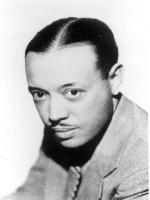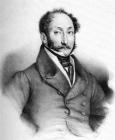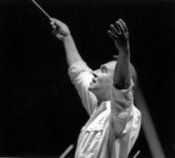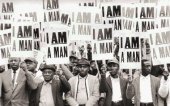I. Moderato assai
from "Twell de night is pas'" (1901)
from "Twell de night is pas'" (1901)
All de night long twell de moon goes down,
Lovin' I set at huh feet,
Den fu' de long jou'ney back f'om de town,
Ha'd, but de dreams mek it sweet.
All de night long twell de break of de day,
Dreamin' agin in my sleep,
Mandy comes drivin' my sorrers away,
Axin' me, "Wha' fu' you weep?"
All de day long twell de sun goes down,
Smilin', I ben' to my hoe,
Fu' dough de weddah git nasty an' frown,
One place I know I kin go.
All my life long twell de night has pas'
Let de wo'k come ez it will,
So dat I fin' you, my honey, at las',
Somewhaih des ovah de hill.
II. Adagio
from "W'en I Gits Home" (1903)
from "W'en I Gits Home" (1903)
It’s moughty tiahsome layin’ ‘roun’
Dis sorrer–laden earfly groun’,
An’ oftentimes I thinks, thinks I,
‘T would be a sweet t’ing des to die,
An’ go ‘long home.
Home whaih de frien's I loved 'll say,
"We've waited fu' you many a day,
Come hyeah an' res' yo'se'f, an' know
You's done wid sorrer an' wid woe,
Now you's at home."
W'en I gits home some blessid day,
I 'lows to th'ow my caihs erway,
An' up an' down de shinin' street,
Go singin' sof' an' low an' sweet,
W'en I gits home.
I wish de day was neah at han',
I's tiahed of dis grievin' lan',
I's tiahed of de lonely yeahs,
I want to des dry up my teahs,
An' go 'long home.
Oh, Mastah, won't you sen' de call?
My frien's is daih, my hope,
my all. I'l waitin' whaih de road is rough,
I want to wheyey you say, "Enough,
Ol' man, come home!"
III. Animato
from "An Ante-Bellum Sermon" (1897)
from "An Ante-Bellum Sermon" (1897)
We is gathahed hyeah, my brothahs,
In di howlin' wildaness,
Fu' to speak some words o comfo't
to each othah in distress.
An' we choose fu' ouah subjic'
Dis—-we'll 'splain it by an' by;
"An' de Lawd said, "Moses, Moses,"
An' de man said, Hyeah am I.'"
Now ole Pher'oh, down in Egypt
Was de wuss man evah bo'n,
An' he had de Hebrew chillun
Down dah wukin' in his co'n;
'Twell de Lawd got tiahed o' his foolin',
an' sez he: "I'll let him know'
Look hyeah, Moses, go tell Pher'oh
Fu' to let dem chillun go."
"An' ef he refuse do it,
I will make him rue de houah,
fu' I'll empty down on Egypt
All de vials of my powah."
Yes, he did—-an' Pher'oh's ahmy
Wasn't wurth a ha'f a dime;
Fu' de Lawd will he'p his chillum,
You kin trust him evah time.
An' you' enemies may 'sail you
In de back an' in de front;
But de Lawd is all aroun' you,
Fu' to ba' de battle's brunt.
Dey kin fo'ge yo'chains an' shackles
F'om de mountains to de sea;
But de Lawd will sen' some Moses
Fu' to set his chilun free.
An' de lan' shall hyeah his thundah,
Lak a blas' f'om Gab'el's ho'n,
Fu' de Lawd of hosts is mighty
When he girds his ahmor on.
But fu' feah some one mistakes me,
I will pause right hyeah to say,
Dat I'm still a-preachin' ancient,
I ain't talkin' bout to-day.
But I tell you, fellah christuns,
Things'll happen mighty strange;
Now, de Lawd done dis fu' Isrul,
An' his ways don't nevah change,
An' de love he showed to Isrul
Wasn't all on Isrul spent;
Now don't run an' tell yo' mastahs
Dat I's preachin' discontent.
'Cause I isn't; I'se a-judgin'
Bible people by dier ac's;
I'se a-givin' you de Scriptuah,
I'se a-handin' you de fac's.
Cose ole Pher'or b'lieved in slav'ry,
But de Lawd he let him see,
Dat de people he put bref in,
Evah mothah's son was free.
An' dah's othahs thinks lak Pher'or,
But dey calls de Scriptuah liar,
Fu' de Bible says "a servant
Is worthy of his hire,"
An' you cain't git roun' nor thoo dat,
An' you cain't git ovah it,
Fu' whatevah place you git in,
Dis hyeah Bible too'll fit.
So you see de Lawd's intention,
Evah sence de worl' began,
Was dat His almight freedom
Should belong to evah man,
But I think it would be bettah,
Ef I'd pause agin to say,
Dat I'm talkin' 'bout ouah freedom
In a Bibleistic way.
But de Moses is a-comin',
An' he's comin', suah and fas'
We kin hyeah his feet a-trompin',
We kin hyeah his trumpit blas'.
But I want to wa'n you people,
Don't you git too brigity;
An' don't you git to braggin'
"Bout dese things, you wait an' see.
But when Moses wif his powah
Comes an' sets us chillun free,
We will praise de gracious Mastah
Dat has gin us liberty;
An' we'll shout ouah halleluyahs,
On dat mighty reck'nin' day,
When we'se reco'nised ez citiz'
Huh uh! Chillun, let us pray!
IV. Lento, con risoluzione
from "Ode to Ethiopia" (1897)
from "Ode to Ethiopia" (1897)
O Mother Race! to thee I bring
This pledge of faith unwavering,
This tribute to thy glory.
I know the pangs which thou didst feel,
When Slavery crushed thee with its heel,
With thy dear blood all gory.
Sad days were those—ah, sad indeed!
But through the land the fruitful seed
of better times was growing.
The plant of freedom upward sprung,
And spred its leaves so fresh and young—
Its blossoms now are blowing.
On every hand in this fair land,
Proud Ethiope's swarthy children stand
Beside their fairer neighbour;
The forests flee before their stroke,
Their hammers ring their forges smoke,
They sit in honest labour.
They tread the fields where honour calls;
Their voices sound through senate halls
In majesty and power.
To right they cling; the hymns they sing
Up to the skies in beauty ring,
And bolder grow each hour.
Be proud, my race, in mind and soul;
Thy name is writ on Glory's scroll
In characters of fire.
High 'mid the clouds of Fame's bright sky
Thy banner's blazoned folds now fly,
And truth shall lift them higher.
Thou hast the right to noble pride,
Whose spotless robes were purified
By blood's severe baptism.
Upon thy brow the cross was laid,
And labour's painful sweat-beads made
A consecrating chrism.
No other race, or white or black,
When bound as thou wert, to the rack,
So seldom stooped to grieving;
No other race, when free again,
Forgot the past and proved them men
So noble in forgiving.
Go on and up! Our souls and eyes
Shall follow thy continuous rise;
Our ears shall list thy story
From bards who from thy root shall spring,
and proudly tune their lyres to sing
Of Ethiopia's glory.
inviata da Bernart Bartleby - 31/10/2020 - 20:01
×
![]()










Composta da William Grant Still nel 1930, è stata – credo - la prima sinfonia scritta da un afroamericano ad essere eseguita in pubblico, nel 1931, da una grande orchestra filarmonica.
Il testo è costituito da estratti (in grassetto) da quattro poesie di Paul Laurence Dunbar (1872-1906), uno fra i più importanti poeti afroamericani, che utilizzò prevalentemente, come carattere distintivo, il "Black English", ovvero, per i detrattori bianchi, il "negro dialect", restituendogli la dignità che il razzismo negava ad esso come a chi lo parlava.